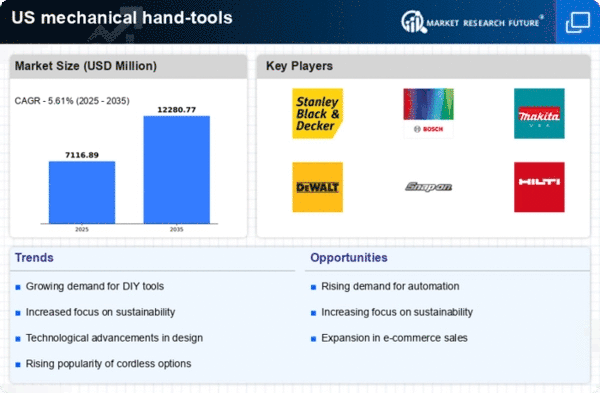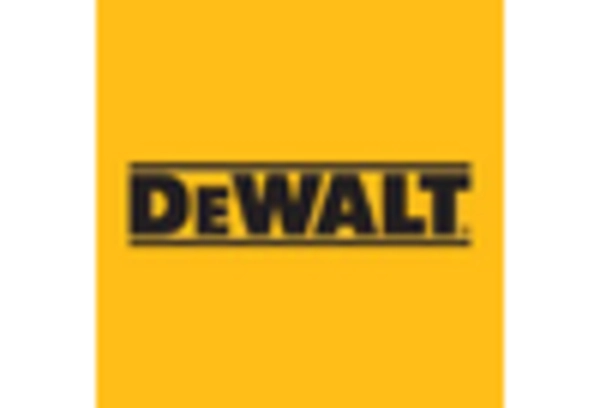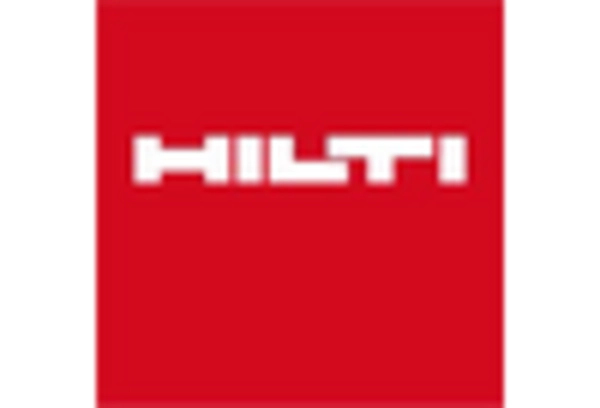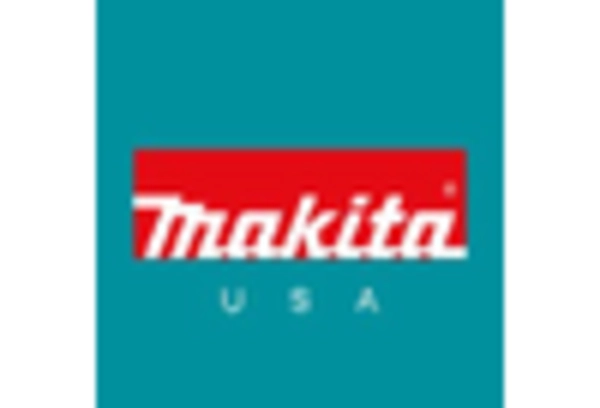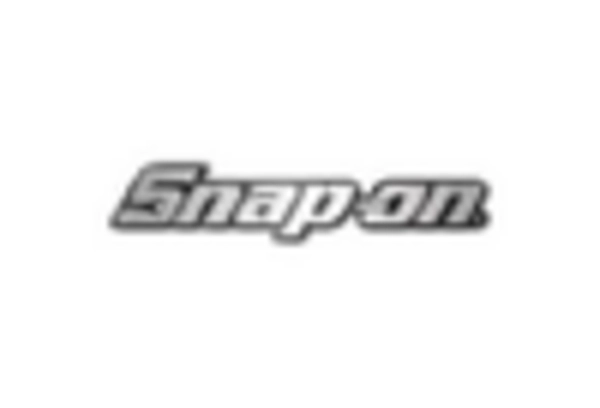Growth of the Automotive Sector
The automotive sector plays a crucial role in driving the mechanical hand-tools market in the United States. With the automotive industry projected to reach a market size of over $800 billion by 2026, the demand for mechanical hand-tools used in vehicle maintenance and repair is expected to increase significantly. Mechanics and automotive technicians require a wide array of hand-tools for tasks ranging from routine maintenance to complex repairs. This growing need for specialized tools is likely to stimulate the mechanical hand-tools market, as manufacturers respond to the evolving requirements of the automotive sector. Additionally, the rise of electric vehicles may introduce new tool requirements, further diversifying the market landscape.
Expansion of E-commerce Platforms
The mechanical hand-tools market is experiencing a transformation due to the expansion of e-commerce platforms. As more consumers turn to online shopping for convenience and variety, the accessibility of mechanical hand-tools has significantly improved. E-commerce sales in the tools and hardware sector are projected to grow by over 20% in the next few years, indicating a shift in consumer purchasing behavior. This trend allows manufacturers and retailers to reach a broader audience, including DIY enthusiasts and professionals alike. The ability to compare products, read reviews, and access a wider range of tools online is likely to enhance consumer confidence and drive sales in the mechanical hand-tools market.
Increased Construction Activities
The mechanical hand-tools market experiences a notable boost due to the surge in construction activities across the United States. With the construction sector projected to grow at a CAGR of approximately 4.5% from 2025 to 2030, the demand for reliable hand-tools is expected to rise correspondingly. This growth is driven by both residential and commercial projects, which require a diverse range of mechanical hand-tools for various applications. As infrastructure development continues to be a priority for both public and private sectors, the mechanical hand-tools market stands to benefit significantly from this trend. Furthermore, the increasing focus on urbanization and housing development is likely to further enhance the demand for these tools, as contractors and builders seek efficient and durable solutions to meet project timelines.
Technological Advancements in Tool Design
The mechanical hand-tools market is witnessing a transformation due to technological advancements in tool design and manufacturing processes. Innovations such as ergonomic designs, lightweight materials, and enhanced durability are becoming increasingly prevalent. These advancements not only improve user experience but also increase the efficiency and effectiveness of the tools. For instance, tools that incorporate advanced materials can reduce wear and tear, thereby extending their lifespan. The market is also seeing the introduction of smart tools that integrate digital features, which can enhance precision and usability. As consumers become more aware of these innovations, the demand for technologically advanced mechanical hand-tools is likely to rise, further propelling market growth.
Rising Interest in Home Improvement Projects
The mechanical hand-tools market is benefiting from a rising interest in home improvement projects among consumers. As homeowners increasingly engage in renovations and upgrades, the demand for quality hand-tools is on the rise. Reports indicate that the home improvement market in the United States is expected to reach approximately $500 billion by 2026, which directly correlates with the increased sales of mechanical hand-tools. This trend is fueled by a growing DIY culture, where individuals seek to undertake projects themselves rather than hiring professionals. Consequently, retailers are expanding their offerings of mechanical hand-tools to cater to this burgeoning market, which is likely to sustain growth in the industry.


